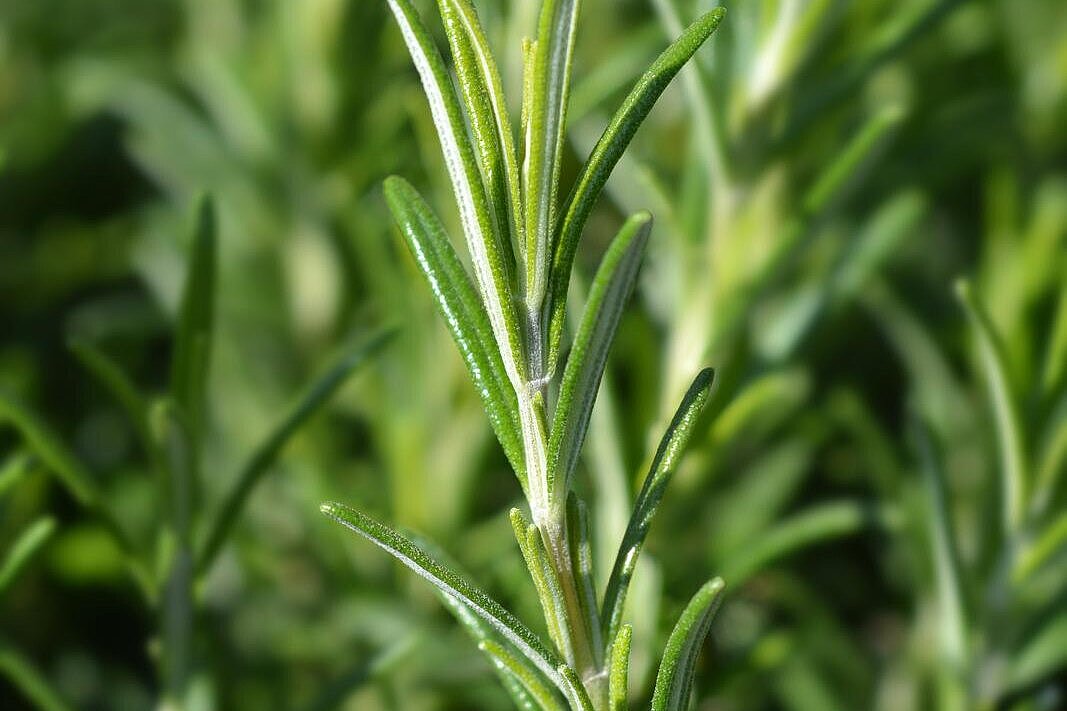Basil extract

What is basil extract?
Basil extract is obtained from the leaves of the basil plant (Ocimum basilicum), an herb known for its distinctive aroma and its many uses in the kitchen. In addition to its culinary value, however, basil also has a number of health-promoting properties that make it an interesting candidate for natural animal care. The extract is typically made by soaking the basil leaves in a solvent to extract the active compounds.
Benefits of basil extract for dogs
Natural antioxidant properties
Basil is rich in antioxidants, particularly flavonoids and essential oils, which can help protect cells from free radicals and oxidative stress. These antioxidant properties can support your dog's overall health and well-being by boosting the immune system and potentially reducing the risk of certain diseases.
Promoting digestive health
Basil extract can also have positive effects on the digestive system. The essential oils it contains can have an antispasmodic effect, helping to relieve digestive discomfort such as bloating, nausea and cramps. This makes basil extract a potential natural support for dogs with sensitive digestion.
Supporting oral health
The antimicrobial properties of basil can help maintain oral health by inhibiting the growth of bacteria that can lead to plaque and gum disease. Regular use of basil extract in your dog's diet could therefore help to reduce bad breath and prevent dental problems.
Disadvantages and precautions
Possible allergic reactions
As with any new ingredient, there is a risk of allergic reactions when introducing basil extract into your dog's diet. Symptoms of an allergy can include skin rashes, itching or digestive upset. It is important to look out for such signs when using basil extract for the first time and consult a vet if necessary.
Overdose and side effects
Although basil extract is considered safe when used correctly, an overdose can lead to side effects. Too much basil extract could cause gastrointestinal discomfort or other health problems. It is crucial to stick to the recommended dosage and if in doubt, speak to a vet.
Quality and purity of the extract
The quality of basil extract plays an important role in its safety and effectiveness. Not all products are the same, and some may contain impurities or additives that could be harmful to dogs. Be sure to choose high-quality, pure extracts from trusted manufacturers.
Basil extract can be a valuable addition to your dog's diet and care, with potential health benefits ranging from antioxidant properties to promoting digestive and oral health. However, as with any supplement, care must be taken to ensure it does not harm your dog. Start with a small amount to test tolerance and consult a veterinarian to determine the correct dosage and application for your dog. With proper use, basil extract can be a natural and healthy supplement that supports your four-legged friend's well-being.
Properties 12
Are you looking for other ingredients with a specific property?
Just click on them to find more.
If you notice any signs of hypersensitivity or poisoning in your dog, you should see your vet immediately. We are not a substitute for a vet, but we try to be as accurate as possible. Every dog reacts differently and we recommend you get a second opinion or consult your vet if in doubt.
Stay healthy and take good care of your four-legged friend!😊
Similar to Basil extract
Coriander extract is obtained from the leaves and seeds of the coriander plant (Coriandrum sativum). This herb, also known as Chinese parsley, is used worldwide in the culinary world and has a long...
Parsley extract is obtained from the leaves of the parsley plant (Petroselinum crispum) by concentrating the active ingredients through various extraction processes. This concentrate contains a...
Rosemary extract is a herbal product obtained from the leaves and twigs of rosemary. Rosemary belongs to the labiate family and is closely related to other herbs such as sage, thyme and lavender....
Thyme extract is obtained from the leaves and flowers of the thyme plant (Thymus vulgaris), a herb native to the Mediterranean regions. Known for its characteristic aroma and its use in cooking,...



